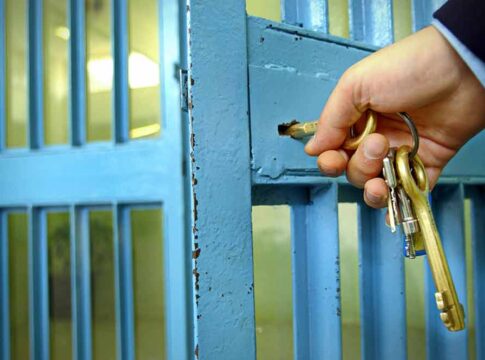Steve Bannon’s bid for early prison release under the First Step Act highlights potential partisan politics within the legal system. The First Act allows offenders to apply for early release. Processing delays cited by the Bureau of Prisons for continued detention. Bannon’s legal team attributes the delay to bias against conservatives.
Bannon’s Denial of Early Release
Steve Bannon, a former adviser in the Trump administration, remains in prison after being denied early release despite his qualifications under the First Step Act. In 2018, this act was signed as part of a law that allows certain offenders to apply for reduced sentences. Yet, Bannon’s transition to home confinement was hindered by reported processing bottlenecks by the Bureau of Prisons, hindering what seemed a birthright under the new legislation.
Bannon’s legal team noted that he “has accrued ten days’ worth of First Step Act credits,” enough to argue for his early release by October 19, 2024. Nevertheless, the Bureau of Prisons justified their decision citing “insufficient time” to process his request. The consideration delay leads to his incarceration carrying on until October 29, 2024, raising the specter of partiality in the justice system’s handling of conservatives.
Steve Bannon is a political prisoner like many others unjustly prosecuted by the Biden/Harris admin.
Steve will be released from prison next week however it’s wrong that he was denied his rights for early release under the First Step Act.
Vote for Trump to end this nightmare! pic.twitter.com/6KE4X6u4Wl
— Marjorie Taylor Greene 🇺🇸 (@mtgreenee) October 22, 2024
Implications Against DOJ
Bannon’s refusal for early release might add credence to assertions of the Department of Justice’s bias. Serving a four-month sentence for contempt of Congress for dodging a committee related to the January 6 investigation, Bannon’s situation serves as a potential example of selective enforcement and politicization within the judiciary.
“To date, Mr. Bannon has earned 10 First Step Act time credits,” Darek Puzio wrote in a letter to Bannon’s attorney.
Bannon’s legal representatives blasted the delays as “bureaucratic processing delay,” emphasizing their frustration. Adding to their case, Bannon has lodged an appeal to the Supreme Court maintaining an eager defiance, garnering further examination into what he perceives as an “arm of a corrupt DOJ.”
⚠️ STEVE BANNON – "Biden-Harris Are Illegally Holding Me Past My Release Date"
"They understand we're ascendant, we're gonna get 50% of the black male vote, we're gonna get an overwhelming majority of the Hispanic vote, Asian Americans the white working class, students, people… pic.twitter.com/qCCWcMsfz5
— Culture War (@CultureWar2020) October 18, 2024
Bannon’s Criticism of Harris
In his critiques, Bannon dubbed Vice President Kamala Harris the “Queen of Mass Incarceration,” attributing to her legislative past a failure in effectively executing Trump’s criminal justice reform intended to reduce nonviolent offenders’ sentences. He stated Harris’s actions have maintained lengthy incarcerations for Black and Hispanic men, potentially impacting her political future and chances in voter-rich states.
As Bannon concludes his four-month stint, his legal motivations are shadowed by broader contentious issues surrounding the First Step Act’s implementation. With Trump reportedly gaining traction among minority demographics, Harris’s delayed policy advancements could perpetuate impactful dialogues leading to consequential outcomes within the changing political atmosphere.


